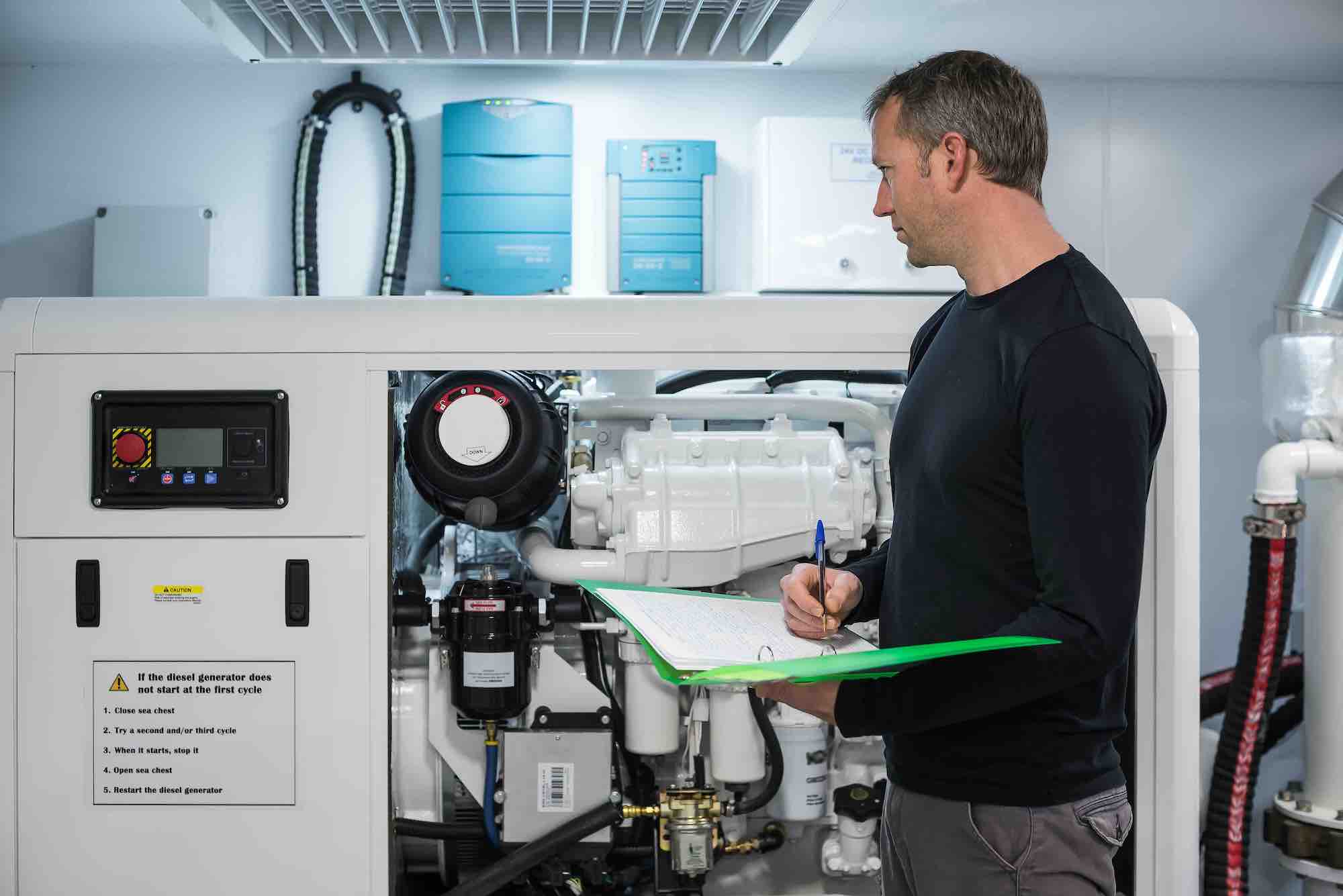Superyacht engineers are often regarded as the unsung heroes who work tirelessly behind the scenes to ensure the smooth operation of the vessel and all onboard machinery and systems. As technology on yachts has evolved so has the role of engineers. The modern-day engineer needs to have an extensive and multifaceted skill set.
The role of the engineering department extends much further than the running and maintenance of the main engines, they assume responsibility for almost all machinery onboard. It is the engineers' job to ensure that all mechanical and electrical systems function correctly and are safe to operate. Along with the Captain, the primary responsibility of a Chief Engineer is to ensure the safety of all personnel on board. A chief engineer will have a planned maintenance schedule that they follow, they will also play a big role in the planning and execution of a yard period or refit

Some of the roles of the engineering department will include but are not limited to: plumbing, electrics, AV systems, firefighting systems, maintenance of the anchors and cranes, bunkering fuel, internet & satellite systems, swimming pool & jacuzzi operations and servicing tenders and Jetski’s etc. A yacht engineer needs to be able to fix almost anything at any time, whether it is a blocked toilet, a broken door, a guest’s hairdryer, a faulty coffee machine or a hydraulic crane. They need to be a jack of all trades.
ENGINE ROOM STRUCTURE
The structure of the engine room will vary depending on the size of the yacht, as the yacht increases in size, so will the number of engineers. Yachts less then 200GT may even have a captain or mate performing the engineering duties and some yachts (usually between 30-65m) may have dual roles where a deckhand doubles up as a 2nd or 3rd engineer and shares his/her time between departments.
- Chief Engineer: The chief engineer heads the engine room department and reports directly to the captain. He/she assumes great responsibility and it is a job that requires vast amounts of experience and skill. They will oversee the entire department and provide direction and training to the other engineers.
- 2nd Engineer: Takes command directly from the chief engineer. The 2nd engineer is usually on the way to becoming a chief engineer and is in the process of completing qualifications and/or sea time. It is usually a very hands-on job (Chief deals with planning and paperwork). Oversees, assists and provides direction for the remaining engineers. 2nd Engineers (if qualified) will sometime stand in for a Chief when they are on vacation and it is therefore great preparation for a chief engineer role.
- 3rd/4th Engineer: The role of these engineers varies greatly depending on the size of the yacht, on larger yachts a 3rd engineer may assume great responsibility. He/she will be an assistant to the second engineer and will be given many portfolios to take charge of. They will report to the Chief and 2nd engineer and will train, oversee and provide direction to the rest of the engineering department. The 3rd and/or 4th engineer are usually in the process of trying to gain sea time and qualifications.
- Assistant Engineer: The number and role of these engineers will vary greatly depending on the size of the yacht. This is an entry-level position on larger yachts and these engineers will report to anyone above them in the hierarchy. They will assume menial roles like cleaning sea strainers, unblocking toilets, cleaning bilges and basic ‘handyman’ tasks around the yacht. However, they will also assist the more senior engineers in complex tasks and it is, therefore, a great learning experience. It is an opportunity to gain sea time and get the chief to sign off your Training Record Book (TRB). Often these engineers will be expected to help out on deck when it is busy and may even perform a dual role, such as Deck/Engineer.
- ETO: Electrical Technical Officer is a position found on larger yachts (usually over 70m). He/she is responsible for the day-to-day maintenance of all electronic, AV, computer and communication systems on board. This can be a very complex role and requires a specific type of training and skill set.
BENEFITS OF BECOMING A SUPERYACHT ENGINEER
Being a yacht engineer is hard work; you work long hours and are often not allowed to leave the boat for safety reasons, it is a high-pressure job, many of the tasks are far from glamorous and once you have gained experience many tasks will feel menial and below your capabilities. There are however many benefits:
- Yacht engineers are generally well paid and are often on rotation.
- The job is challenging and there are many enjoyable tasks.
- You have greater freedom than other departments to work in a manner and style that suits you.
- There is less interaction with guests, yacht engineers may interact with guests if they like, but they are not required to at all times and are able to slip off down to the engine room when they wish.
- Chief engineers assume great responsibility in yard periods and refits and become very proud of ‘their’ yachts and projects.
